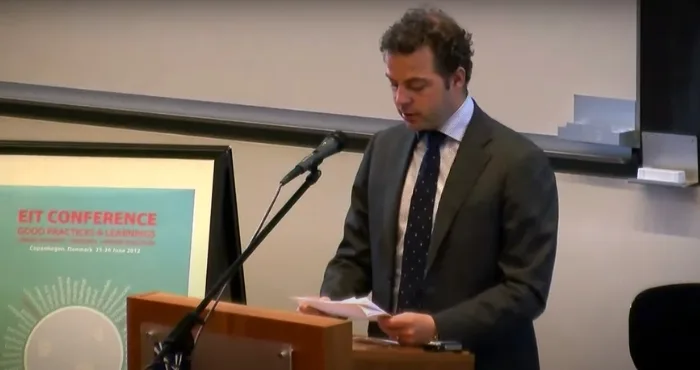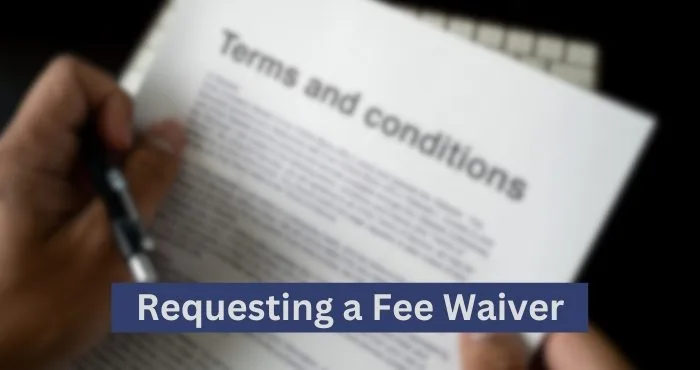Conferences are essential platforms for professionals to network, share ideas, and learn about advancements in their fields. But what happens when financial constraints stand in the way? This brings us to an important question: Is it ok to ask the conference chair to waive the registration fee?”
Yes, it is generally acceptable to make such a request. Many conferences understand that there are special circumstances, such as disability or being affected by war, that might impede someone’s ability to afford the registration fee. In these extreme cases, organizers may consider waiving the fee.
For those curious about how to make this request or who qualifies for such waivers, our article dives deeper into the topic, offering comprehensive insights and practical advice.
The Role of Conference Chair
The role of a conference chair is multifaceted, requiring a unique blend of leadership, organization, and expertise. These individuals are key to the planning and successful execution of conferences, ensuring the event meets its objectives. Here, we explore the various responsibilities that define this crucial role.

- Planning and Coordination: The conference chair is responsible for the event’s overall planning, coordinating different aspects to ensure a cohesive experience.
- Speaker Selection: They carefully select speakers, aiming to provide a diverse range of insights and expertise to attendees.
- Budget Management: Effectively managing the conference budget is essential to ensure financial resources are allocated wisely. They may also help determine provisions for attendees who want to get conference registration fee waivers. This careful planning can increase accessibility and encourage greater participation in the event.
- Team Leadership: Leading a team of organizers and volunteers, the chair ensures each team member contributes effectively to the event.
- Problem-solving: They are adept at solving unforeseen issues, ensuring the conference proceeds smoothly despite any challenges.
- Networking Facilitator: By fostering an environment conducive to networking, they help attendees form valuable professional connections.
Conference chairs play an integral role in professional gatherings worldwide, from major industry summits in Europe to academic conferences in Canada, offering seamless organisation and enriching experiences. Their leadership and organizational skills bring together various elements, creating a productive and engaging event for all participants.
Is it OK to Ask the Conference Chair to Waive the Registration Fee?
Yes, it is perfectly acceptable to ask the conference chair to waive the registration fee. Many conferences have provisions for special circumstances, considering waivers to promote inclusivity and accessibility. When evaluating your request, the chair may consider factors such as your financial situation, student status, or contributions to the conference.
Knowing the context around whether is it OK to Ask the Conference Chair to Waive the Registration Fee can help you frame your request effectively. Be clear and concise about your reasons, and express your eagerness to participate and contribute to the event.
Conference Policies
Conferences typically outline their fee waiver policies on their websites or informational brochures. These policies detail eligibility criteria and the application process. Review these guidelines thoroughly before making a request. Some conferences might have a limited number of waivers available, making early application advisable.
Special Circumstances
Waivers are usually intended for attendees in extreme situations like financial hardship, disability, or impact by war. Each conference has its definition of what qualifies as a ‘special circumstance’. Clearly articulate your situation when applying. Providing supporting documents may strengthen your case.
Request Procedure
The process often requires submitting a detailed application or a formal letter explaining your situation. This should be done well in advance of the conference dates. Be concise yet thorough in your request. Respectful and professional communication is key throughout this process.
Discretion of the Chair
The ultimate decision rests with the conference chair or a designated committee, who will evaluate each request based on its merits and the conference’s capacity to grant waivers. It’s important to set realistic expectations, as this decision is made at their discretion. Knowing that many people want to get a conference registration fee waiver can help you understand the competition.
Impact on Conference Budget
Fee waivers can affect the conference’s financial planning. Organizers need to balance generosity with the event’s economic sustainability. This is why waivers are often limited and granted judiciously. Being aware of this helps appreciate the complexities involved in the decision.
Alternative Support
If waivers are not feasible, conferences may offer other forms of support, such as discounted rates or volunteer opportunities. These alternatives can provide a mutually beneficial solution, allowing attendance while supporting the event. Inquiring about such options can be a practical approach if direct waivers are not available.
While it’s permissible to ask for fee waiver, approach the matter with knowledge of the involved factors and the conference’s constraints. Respectful and well-informed requests are more likely to be considered favorably.
What Are the Reasons for Requesting a Fee Waiver From the Conference Chair?
Requesting a fee waiver from the conference chair can be crucial for individuals facing financial challenges. Here are some common reasons that can support your request.
Financial Constraints
Many people, especially students and early-career professionals, often struggle with tight budgets. Conference registration fees can add up when considering travel and accommodation costs. If attending the conference is essential for your growth, such as for networking or learning opportunities, explaining your financial situation can resonate with organizers who value inclusivity.
Educational or Professional Development
Conferences provide vital knowledge and networking opportunities. If you’re a student or in the early stages of your career, attending can significantly impact your future. Highlighting how a waiver would improve your educational or professional development perhaps by allowing you to attend specific sessions relevant to your field—can strengthen your request.
Contribution to the Conference
If you plan to contribute in some capacity, like presenting a paper or volunteering, this can be a compelling reason to ask for a waiver. Demonstrating how your participation adds value to the event can encourage organizers to support your request, fostering a sense of collaboration.
Underrepresented Groups
Many conferences aim to promote diversity and inclusion. If you belong to an underrepresented group, sharing this information can help justify your need for a waiver. Organizers often appreciate the opportunity to elevate diverse voices in their events.
Unforeseen Circumstances
Unexpected life challenges, such as medical emergencies or job loss, can create financial burdens. If you face such circumstances, explaining your situation candidly can elicit empathy from the organizers.
In summary, when requesting a fee waiver, communicate your reasons clearly and respectfully. Your unique story matters, and being open about your circumstances can foster a connection with the conference organizers.
How to Ask the Conference Chair to Reduce the Conference Registration Fee?
The process of asking for a reduction in conference registration fees requires tact and understanding. It’s a matter of presenting your case clearly and respectfully, acknowledging the constraints of the organizers. Here’s a step-by-step guide to approach this situation effectively.
Step 1: Know Conference Policies
Begin by researching the conference’s specific policies regarding fee reductions. Look for guidelines on the conference’s official website, in promotional materials, any available conference scholarships, or by directly contacting the organizers. This initial step is crucial for tailoring your request to align with their policies and procedures.
Step 2: Preparing Your Request
Write a clear, concise, and well-structured letter or email. Articulate your situation, the reasons for requesting a fee reduction, and how your attendance would be mutually beneficial. Ensure your request is coherent, polite, and directly addresses the relevant points.
Step 3: Highlighting Your Circumstances
Clearly outline the specific circumstances that lead you to request a fee reduction. Whether it’s financial constraints, being a student, or working for a non-profit, provide details and any relevant proof to substantiate your situation.
Step 4: Being Respectful and Professional
Address the conference chair or committee formally and respectfully. Maintain a professional tone throughout your communication, recognizing their authority and the financial constraints they may face in organizing the event.
Step 5: Offering to Contribute
Consider offering something in return, like volunteering at the conference, presenting a session, or promoting the event in your network. This gesture can make your request more appealing and demonstrates your commitment to the conference.
Step 6: Following Up Appropriately
After submitting your request, give the organizers adequate time to respond. If you haven’t received a response within a reasonable timeframe, a polite follow-up email can be sent to inquire about the status of your request.
When asking for a reduction in conference fees, it’s important to be informed, articulate, and respectful. This approach not only increases the chances of a positive response but also helps maintain a good relationship with the conference organizers.
Potential Outcomes of Requesting a Waiver for Conference Registration Fees
When you decide to ask the conference chair for a waiver of the registration fee, it’s essential to understand the potential outcomes of your request. While it can be daunting to reach out, especially regarding financial matters, being informed can help you approach the situation with confidence.
Acceptance of Your Request
One of the best outcomes is having your request granted. This can significantly relieve your financial burden, allowing you to participate in the conference. If this happens, express your sincere gratitude to the organizers. A simple thank-you note can foster a positive relationship and encourage future interactions. Engage actively with the content and network with other attendees, showcasing your appreciation for the opportunity.
Conditional Approval
Sometimes, the chair might approve your request with conditions, such as volunteering or presenting at the conference. This scenario benefits everyone: you gain access to the event at no cost, while the organizers receive your contributions. Embrace this opportunity, as it can lead to additional networking experiences and enrich your overall conference journey. In some cases, this may even allow you to attend a conference without registration fees, providing valuable insights and connections.
Denial of Your Request
A denial is also a possibility. This could arise from budget constraints or policies limiting waivers. If denied, don’t take it personally. Instead, explore other funding options like scholarships, grants, or sponsorships that may be available. Many conferences also offer early-bird discounts or payment plans that could help alleviate costs.
No Response
Sometimes, your request might go unanswered due to the chair’s busy schedule. If this happens, it’s acceptable to follow up politely after a reasonable time. This shows your enthusiasm for attending and keeps your name fresh in their minds.
In summary, approaching the conference chair for a registration fee waiver can lead to various outcomes. Each outcome provides valuable lessons and opportunities for personal growth and networking, so maintain a positive attitude and be open to possibilities.
Consideration While Requesting a Fee Waiver
Fee waiver requests for conference registration are a sensitive topic, requiring a tactful and well-informed approach. It’s important to understand the nuances of this process to increase the likelihood of a positive outcome. Here are some essential considerations to keep in mind when requesting a fee waiver.
- Research Conference Policy: Before making a request, thoroughly research the conference’s policy on fee waivers. This ensures your request aligns with their guidelines and procedures.
- Clearly State Reasons: Be clear and honest about your reasons for requesting a waiver. Whether it’s financial hardship or other circumstances, clarity is key.
- Provide Supporting Documentation: If possible, include supporting documents with your request. This could be a student ID, proof of financial hardship, or a letter from an employer.
- Respect the Decision-Making Process: Recognize that the decision is at the discretion of the conference organizers. Respect their process and any constraints they might face.
- Consider Timing: Submit your request well in advance of the conference. Last-minute requests are harder to accommodate and might be declined due to logistical constraints.
- Follow Up Respectfully: After submitting your request, wait for a reasonable period before following up. Always follow up respectfully, acknowledging the time and effort of the organizers.
Requesting a fee waiver requires a thoughtful and well-prepared approach. Being aware of these considerations can help you present a strong case, while also respecting the decision-making process of the conference organizers.
Frequently Asked Questions
In this section, we address common questions about attending conferences, including registration fees and other important considerations. Understanding these topics can help you navigate the conference experience more effectively. Let’s explore whether it’s appropriate to ask the conference chair to waive the registration fee.
What reasons can I provide for asking for a fee waiver?
When asking for a fee waiver, you can mention financial constraints, being a student or early-career professional, contributing as a presenter, or your involvement in underrepresented groups. Sharing your genuine interest in the conference and how it aligns with your goals can strengthen your request, too.
Will my request for a fee waiver affect my chances of being accepted to the conference?
Your request for a fee waiver shouldn’t negatively impact your chances of being accepted to the conference. Organizers often appreciate genuine interest, and your reasons for requesting a waiver may even highlight your commitment to participating. Just be honest and respectful in your approach, and you’ll be fine.
What should I do if my fee waiver request is denied?
If your fee waiver request is denied, don’t be discouraged. Consider reaching out for feedback to understand their decision. You might explore alternative funding options, like scholarships or sponsorships, and remember that attending conferences is still valuable for your growth. Keep looking for opportunities; your efforts will pay off.
How should I follow up after submitting a fee waiver request?
After submitting your fee waiver request, it’s a good idea to follow up politely within a week or two. A simple email expressing your gratitude for their consideration and inquiring about the status can show your enthusiasm. Remember, a friendly nudge can go a long way in building rapport.
Can I ask for a fee waiver if I’m a student?
Absolutely! Many conferences offer fee waivers specifically for students to encourage participation. When requesting, mention your status and explain why attending is important for your academic or professional growth. It’s a great opportunity to connect and learn, so don’t hesitate to ask for support.
Conclusion
In professional conferences, the possibility of requesting a registration fee waiver is a topic of considerable interest. It’s a delicate balance between understanding the event’s financial requirements and an individual’s constraints.
Addressing the question, is it ok to ask the conference chair to waive the registration fee? the answer is affirmative, with a focus on appropriate circumstances and respectful communication. This understanding is crucial for both the requester and the conference organizers, bridging gaps in accessibility.
The approach towards requesting a fee waiver reflects a blend of empathy and professionalism. It underscores the importance of inclusivity in professional settings, allowing for a broader exchange of ideas and knowledge.







